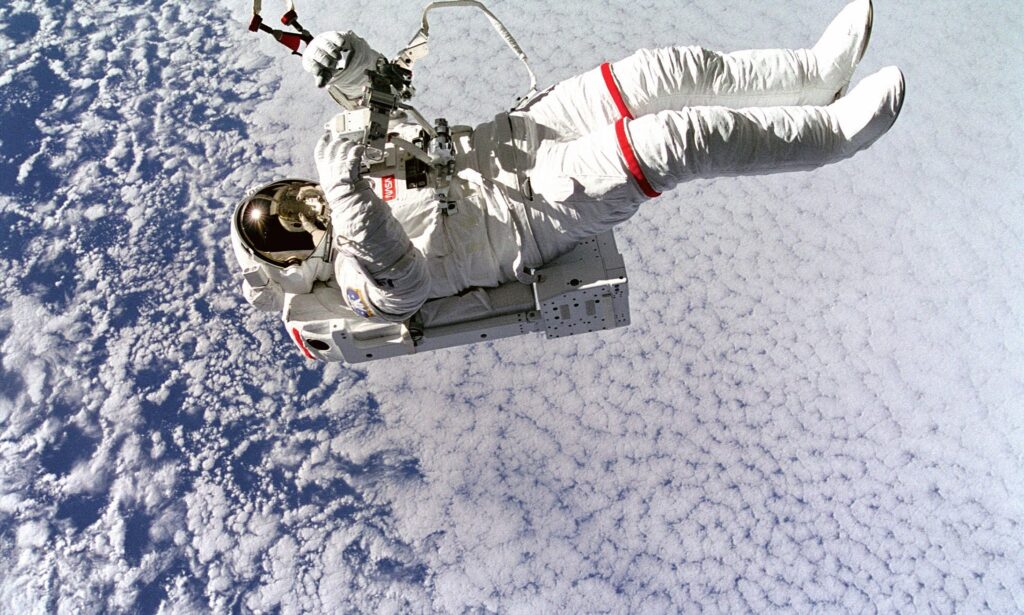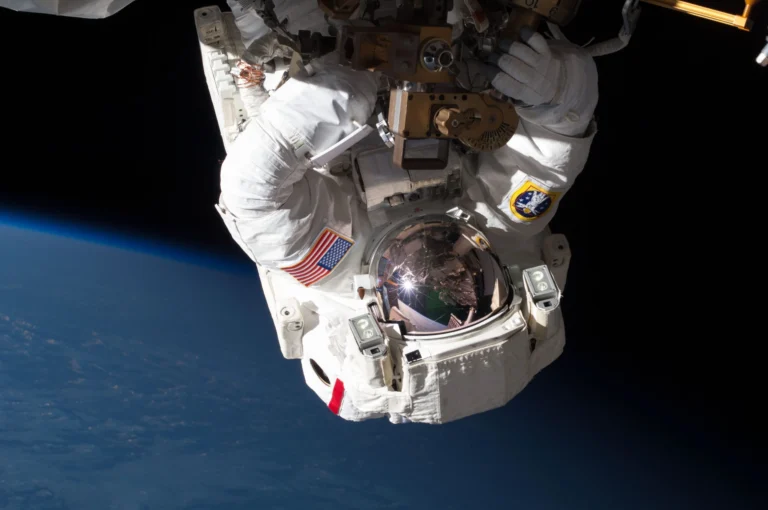Introduction: How Does a Human Body Decompose in Space.
The thought of human decomposition in space captures the imagination and raises many questions about what happens to our bodies in the vast, unyielding environment of space. This article explores the biological and environmental factors that influence how a human body decomposes in the vacuum of space, shedding light on this morbid yet fascinating topic.
The Vacuum of Space and Human Decomposition
Exposure to the Vacuum Unlike on Earth, where bacteria, insects, and environmental factors contribute to decomposition, space presents a vastly different scenario. In the vacuum of space, there is no oxygen, and temperatures can swing dramatically. These conditions mean that the typical process of decomposition—promoted by microbial activity—is drastically altered.
Immediate Effects on the Body When exposed to the vacuum of space, the lack of atmospheric pressure would cause the body to bloat as the air in the lungs and gastrointestinal tract expands. However, the skin’s elasticity typically prevents it from bursting. Fluids in the body would vaporize, leading to a freeze-drying effect in colder regions of space, preserving body tissues. For a deeper understanding of these phenomena, see NASA’s research on human exposure to vacuum.

Biological Processes in a Space Environment
Absence of Conventional Decay In space, the absence of Earth-like microbial life means that the body would not decompose through normal biological processes. Instead, the body would undergo a mummification process through desiccation, meaning it would dry out rather than rot in the traditional sense.
Cosmic Factors Influencing Decomposition Solar radiation would further impact the body, causing photochemical reactions in skin tissues and other exposed surfaces. This exposure could lead to a slow breakdown of tissues and cells, but at a much slower rate than decomposition on Earth. The Astrobiology Journal provides extensive studies on the effects of solar radiation on biological materials in space.
The Role of Containment and Artificial Environments
Spacecraft and Space Stations If a body decomposes inside a spacecraft or a space station, the process would differ significantly. Controlled environments with some atmospheric pressure and oxygen would allow for more Earth-like decomposition, although still slower due to limited microbial activity.

Protection and Containment Measures Space agencies have protocols to manage any possible human remains in space. These measures help maintain hygiene and safety for living crew members and prevent any biological contamination of spacecraft and other celestial bodies. For protocols on dealing with human remains in space, refer to the International Space Station guidelines.
Conclusion: How Does a Human Body Decompose in Space
Decomposition in space remains largely theoretical but is a topic of significant interest in astrobiology and forensic science. As human space travel evolves, understanding how bodies decompose in space will become increasingly important, especially for long-duration missions and the health management of astronauts.


